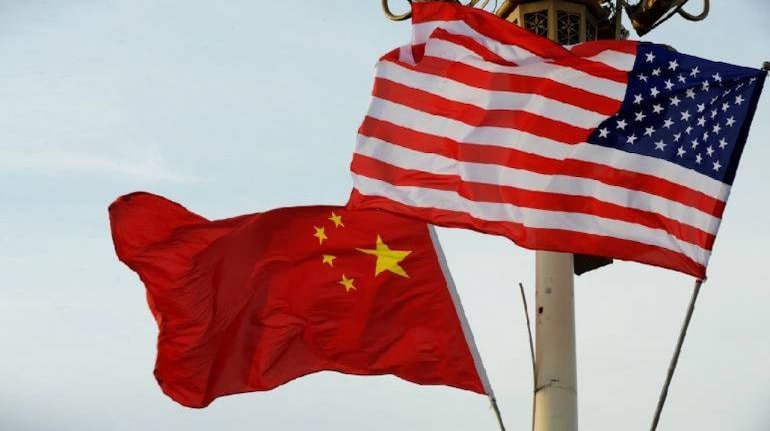



Shishir Asthana
Its payback time for the trigger-happy President Donald Trump whose cowboy style of policy-making has dismayed many. Unfortunately, the US taxpayer is having to pick up the tab of his misadventure.
In shield its farmers from the blowback of the president’s trade policies, the Trump administration announced a $12 billion emergency relief package.
Reacting to tariffs imposed by the US on steel and aluminum, the European Union, Canada, Mexico and China, the affected countries, countered the move by announcing retaliatory tariffs. The move was a well thought one.
These countries targeted the farm produce from the US. American soybeans, pork, sugar, orange juice, cherries and other products now face tariffs in these markets. Farm produce incidentally is among the few sectors where the US has a positive trade balance.
Secondly hitting the agricultural base also delivered an important political message. Farm country has traditionally been Trump’s Republican party’s stronghold.
The pressure tactic worked.
Two days before Trump was expected to vivit Iowa, the largest soybean producing state, the US government announced the emergency relief.
A $12 billion emergency package is not only taxpayer money going to the farms instead of development work but it is the first tab that the US is picking since initiating the trade war.
The move has caused both the Democrats, and more importantly the Republican to sit up and take notice.
Senator Jerry Moran of Kansas, a Republican put it succinctly when he said: "There will never be enough money to solve the problem created by duties on American farm goods."
Agriculture has a sizeable trade surplus in a normally trade deficit economy. This year trade surplus from agriculture was projected to touch $21 billion. Ironically Trump’s targeted economies of Canada, China and Mexico are the three biggest buyers of U.S. farm goods, accounting for 43 percent of purchases in 2017.
Trump tried to put up a brave face after announcing the relief by tweeting ‘Tariffs are the greatest! Either a country which has treated the United States unfairly on Trade negotiates a fair deal, or it gets hit with Tariffs. It’s as simple as that - and everybody’s talking! Remember, we are the “piggy bank” that’s being robbed. All will be Great!
However, Trump seems to have forgotten that the US piggy bank is filled by borrowing money from other countries. He had to be reminded of the same by Senator Bob Corker of Tennessee, a Republican, who has been quoted as saying “You have a terrible policy that sends farmers to the poorhouse, and then you put them on welfare, and we borrow the money from other countries.”
The relief, according to the US government is in line with the estimated impact from retaliatory tariffs on U.S. agricultural exports. The aid will be awarded to soybean, cotton, dairy, corn and hog farmers.
The $12 billion aid would be delivered in three ways. A part will go as a direct assistance for producers of soybeans, cotton, dairy, corn, and hogs. Another part of the fund will be used in the food purchase program under which the government will buy surpluses of beef, legumes and other products, which the farmers could not export on account of the tariff barrier raised by importing countries. A third portion will be allocated for trade promotion. The exact breakup has not be made public.
Government officials have called the aid disbursement as a one-time program and a "short-term bridge" designed "to help the president successfully negotiate these deals."
Trump hopes that this aid will help him buy time to bring the trading partners on their knees. But given the reaction from the effected countries, it is clear that they are girding up for a protracted war.
The US farmers, who are bearing the brunt of Trump’s shoot-from-the-hip policies, were already grappling with falling prices of agriculture produce which on an average have fallen by 15 percent. The US media, has quoted farmers as saying they welcomed the relief package, but saw it only as a temporary relief. They would prefer open market access in order to sell their products in markets which have taken years to develop. US experts are also saying that the move is not complaint with the norms of World Trade Organisation (WTO) and can trigger litigations from trade partners.
US agriculture is just the first sector that has been affected by disturbing the equilibrium in world trade. For countries engaged in the trade war, it is the first sizeable wound that has been inflicted on the US.
This development, however, presents an opportunity to an agrarian economy like India to capture the space evacuated by US farmers. Rather than focusing its energy on increasing minimum support price (MSP), which the government did for soybean, Indian farmers would be better off if the government appraised them of such opportunities.
Discover the latest Business News, Sensex, and Nifty updates. Obtain Personal Finance insights, tax queries, and expert opinions on Moneycontrol or download the Moneycontrol App to stay updated!
Find the best of Al News in one place, specially curated for you every weekend.
Stay on top of the latest tech trends and biggest startup news.